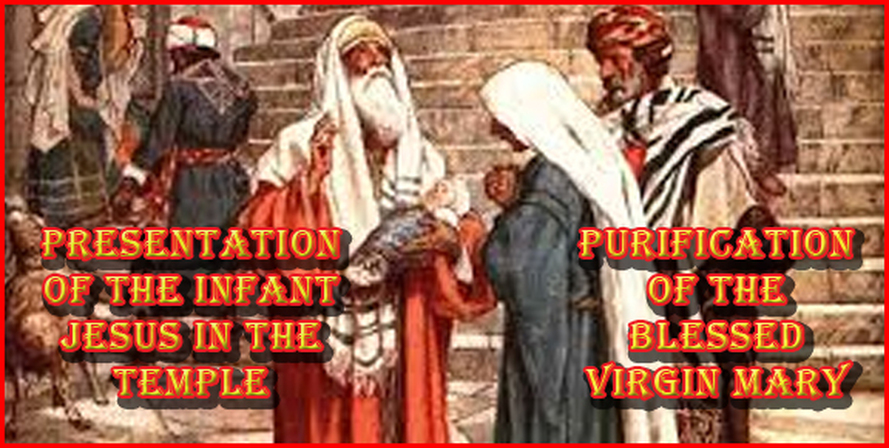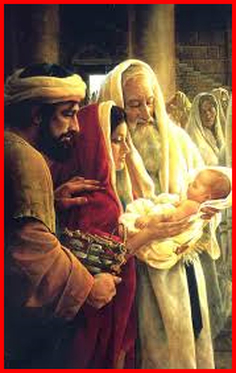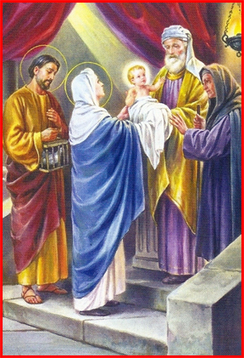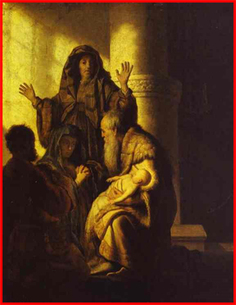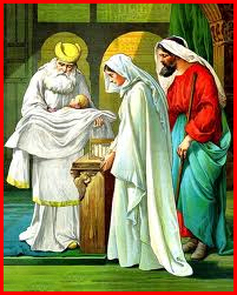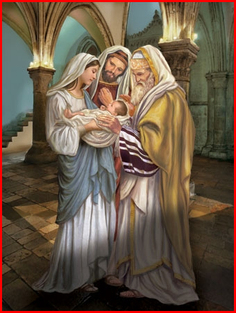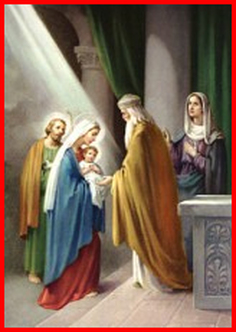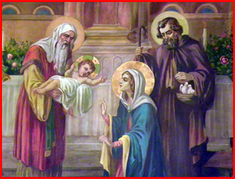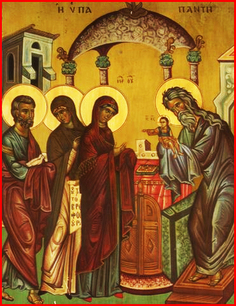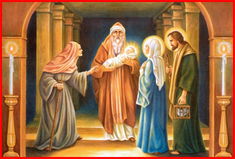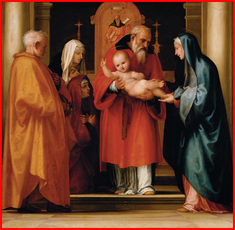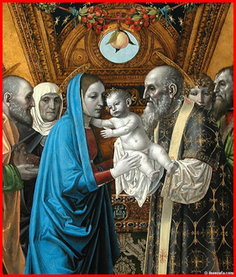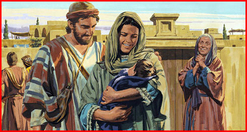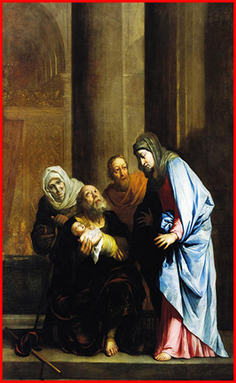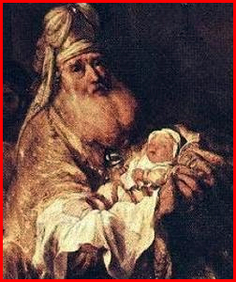| Devotion to Our Lady |
|
- Homepage
-
Daily Thoughts
- 2023 October Daily Thoughts
- Daily Thoughts Lent 2020
- Daily Thoughts for Advent 2019
- Daily Thoughts for October 2019
- Daily Thoughts for September 2019
- Daily Thoughts for August 2019
- Daily Thoughts for July
- Daily Thoughts for June
- Daily Thoughts for Easter 2019
- Daily Thoughts for Lent 2019
- Daily Thoughts for Christmas
- Daily Thoughts Easter 2022
- Consecration
- Easter Season
-
Spiritual Life
- Holy Mass Explained
- First Friday Devotions
- First Saturday Devotions
- The Mercy of God
- Vocations
- The Path Everyone Must Walk >
- Gift of Failure
- Halloween or Hell-O-Ween?
- Ignatian Spiritual Exercises >
- Meditation is Soul-Saving
- Spiritual Communion
- Miraculous Medal
- Enrollment in Miraculous Medal
- St. Benedict Medal
- Holy Water
- Advice on Prayer
- Your Daily Mary
-
Prayers
- September Devotions
- Seven Sorrows of Our Lady
-
Novenas
>
- NV-Help of Christians
- NV-Nativity of Our Lady
- NV-Seven Sorrows
- NV- Sorrowful Heart
- NV-Pope St Pius X
- NV-La Salette
- NV-St Michael Archangel
- NV-Immaculate Heart
- NV-Assumption
- NV-Novena for Fathers
- NV-Novena for Your Mother
- NV-St Raphael Archangel
- NV-Souls in Purgatory
- NV-All Saints Day
- NV-Christ the King
- NV-Divine Motherhood
- NV-Guardian Angels
- NV-Rosary
- NV-Mirac Med
- NV- Imm Conc
- NV - Guadalupe
- NV - Nativity of Jesus
- NV-Epiphany
- NV-OL Good Success
- NV-Lourdes
- NV-St Patrick
- NV-St Joseph
- NV-Annunciation
- NV-St Louis de Montfort
- NV-OL Good Counsel
- NV-Last Supper
- NV-Passion
- NV-Pentecost
- NV-Ascension
- NV-Sacred Heart
- NV-Sacred Heart & Perpetual Help
- NV-Corpus Christi
- NV-OL of Perpetual Help
- NV-Queenship BVM
- NV-OL of Mount Carmel
- NV-St Mary Magdalen
- NV- Im Hrt
- August Devotions to IHM
- Immaculate Heart of Mary
- Litany of Dependence
- Prayers to St Mary Magdalen
- Prayers in Times of Sickness Disease & Danger
- Holy Souls in Purgatory
- Meditations on the Litany of Our Lady
- Special Feast Days
- Prayers to Mary (Mon-Sun)
- Litanies to Our Lady >
- Various & Special Needs
- Our Lady of the Rosary
- Our Lady of Mt. Carmel
- Our Lady of Perpetual Help
- Our Lady of Guadalupe
- Other titles of Our Lady
-
Rosary
- Downloads
-
Holy Week
- Last Seven Words of Jesus >
- Characters of Passion >
- The Last Days of Christ
- Before Palm Sunday
- Palm Sunday
- Monday in Holy Week
- Tuesday in Holy Week
- Wednesday in Holy Week
- Holy Thursday (Last Supper)
- Holy Thursday (Agony & Arrest)
- Night Vigil with Christ
- Good Friday (Pilate & Herod)
- Good Friday (Way of Cross & Crucifixion)
- Saturday in Holy Week
-
Lent
- Ideas for Lent
- Daily Lenten Planner
- Daily Lenten Liturgy
- From Cold to Hot
- Lent with Aquinas
- Lent with Dom Gueranger
- Virtues for Lent
- History of Penance
- How Expensive is Sin?
- Confession of Sins
- Letter to Friends of the Cross
- Sermons for Lent
- Stations of the Cross >
- Lenten Prayers
- 7 Penitential Psalms
- Lenten Psalms SUN
- Lenten Psalms MON
- Lenten Psalms TUE
- Lenten Psalms WED
- Lenten Psalms THU
- Lenten Psalms FRI
- Lenten Psalms SAT
- Lenten Laughs
- Septuagesima
-
Christmas
- Epiphany Explained
- Suggestions for Christmas
- Food For Thought
- Christmas with Aquinas
- Christmas with Dom Gueranger
- Christmas Prayers
- Candles & Candlemas
- Christmas Sermons
- Christmas Prayers SUN
- Christmas Prayers MON
- Christmas Prayers TUE
- Christmas Prayers WED
- Christmas Prayers THU
- Christmas Prayers FRI
- Christmas Prayers SAT
- Twelve Days of Christmas >
-
Advent Journey
- Purgatory
- Christ the King
- Legion of Mary
- Scapular
- Sacred Heart
-
Saints
-
Martyrs for the Faith
>
- Your Daily Martyr >
- All 365 Days of Martyrs
- Cristeros
- St Valentine & Valentine's Day
- Martyrs--Thomas Becket
- Martyrs--John the Apostle
- Holy Machabees
- Age of Martyrdom
- Carmelites of Compiegne
- Martyrs--Peter & Paul
- Martyrs--John the Baptist
- Martyrs--Andrew
- Martyrs--James the Great
- Martyrs--North American
- Martyrs--Seven Holy Sleepers
- Martyrs--Afra
- School of Martyrdom
- Martyrs--Christina
- Desert Saints >
- Saints for Sinners >
- Saints of Mary >
- History of All Saints Day
-
Martyrs for the Faith
>
- Precious Blood
- Holy Ghost
- Synod 2023
-
Catechism
- Catechism Lesson 1
- Catechism Lesson 2
- Catechism Lesson 3
- Catechism Lesson 4
- Catechism Lesson 5
- Catechism Lesson 6
- Catechism Lesson 7
- Catechism Lesson 8
- Catechism Lesson 9
- Catechism Lesson 10
- Catechism Lesson 11
- Catechism Lesson 12
- Catechism Lesson 13
- Catechism Lesson 14
- Catechism Lesson 15
- Catechism Lesson 16
- Catechism Lesson 17
- Catechism Lesson 18
- Catechism Lesson 19
- Catechism Lesson 20
- Catechism Lesson 21
- Catechism Lesson 22
- Bible Study
-
Calendar
- Miracles
- Apparitions
- Shrines
- Prophecies
- Angels Homepage
- Hell
-
Church Crisis
- Conspiracy Theories
- Amazon Synod 2019 >
- Liberalism & Modernism
- Modernism--Encyclical Pascendi
- Modernism & Children
- Modernism--Documents
- The Francis Pages
- Church Enemies on Francis
- Francis Quotes
- Amoris Laetitia Critique
- Danger of Ignorance (Pius X)
- Restore all In Christ (Pius X)
- Catholic Action (Pius X)
- Another TITANIC Disaster?
- The "Errors of Russia"
- CRISIS PRAYERS
- Election Novena 2024
- The Anger Room
- War Zone
- Life of Mary
- Spiritual Gym
- Stupidity
- Coronavirus and Catholicism
- History & Facts
- Books
- Catholic Family
- Children
- Daily Quiz
-
Novena Church & Pope
- Day 01 Church-Pope Novena
- Day 02 Church-Pope Novena
- Day 03 Church-Pope Novena
- Day 04 Church-Pope Novena
- Day 05 Church-Pope Novena
- Day 06 Church-Pope Novena
- Day 07 Church-Pope Novena
- Day 08 Church-Pope Novena
- Day 09 Church-Pope Novena
- Day 10 Church-Pope Novena
- Day 11 Church-Pope Novena
- Day 12 Church-Pope Novena
- Day 13 Church-Pope Novena
- Day 14 Church-Pope Novena
- Day 15 Church-Pope Novena
- Day 16 Church-Pope Novena
- Day 17 Church-Pope Novena
- Day 18 Church-Pope Novena
- Day 19 Church-Pope Novena
- Day 20 Church-Pope Novena
- Day 21 Church-Pope Novena
- Day 22 Church-Pope Novena
- Day 23 Church-Pope Novena
- Day 24 Church-Pope Novena
- Day 25 Church-Pope Novena
- Day 26 Church-Pope Novena
- Day 27 Church-Pope Novena
- Day 28 Church-Pope Novena
- Day 29 Church-Pope Novena
- Day 30 Church-Pope Novena
- Day 31 Church-Pope Novena
- Day 32 Church-Pope Novena
- Day 33 Church-Pope Novena
- Day 34 Church-Pope Novena
- Day 35 Church-Pope Novena
- Day 36 Church-Pope Novena
- Day 37 Church-Pope Novena
- Day 38 Church-Pope Novena
- Day 39 Church-Pope Novena
- Day 40 Church-Pope Novena
- Day 41 Church-Pope Novena
- Day 42 Church-Pope Novena
- Day 43 Church-Pope Novena
- Day 44 Church-Pope Novena
- Day 45 Church-Pope Novena
- Day 46 Church-Pope Novena
- Day 47 Church-Pope Novena
- Day 48 Church-Pope Novena
- Day 49 Church-Pope Novena
- Day 50 Church-Pope Novena
- Day 51 Church-Pope Novena
- Day 52 Church-Pope Novena
- Day 53 Church-Pope Novena
- Day 54 Church-Pope Novena
- Penance Novena
- Daily WeAtheR Forecast
LINKS TO OTHER SPECIAL FEASTS (not all links have been activated at this time)
| Nativity of Mary (Sep 8) | Seven Sorrows of Mary (Sep 15) | Our Lady of Ransom (Sep 24) | Our Lady of the Rosary (Oct 7) | Divine Maternity (Oct 11) |
| Presentation of Mary in Temple (Nov 21) | Our Lady of the Miraculous Medal (Nov 27) | Immaculate Conception (Dec 8) |
| Our Lady of Guadalupe (Dec 12) | Purification of Mary (Feb 2) | Annunciation (Mar 25) | Help of Christians (May 24) |
For the other meditations click on any link below (not all links have been activated at this time)
| 12-MONTH OVERVIEW OF FEAST DAYS | SPECIAL FEASTS OF MARY | JANUARY | FEBRUARY | MARCH |
| APRIL | MAY | JUNE | JULY | AUGUST | SEPTEMBER | OCTOBER | NOVEMBER | DECEMBER |
| Nativity of Mary (Sep 8) | Seven Sorrows of Mary (Sep 15) | Our Lady of Ransom (Sep 24) | Our Lady of the Rosary (Oct 7) | Divine Maternity (Oct 11) |
| Presentation of Mary in Temple (Nov 21) | Our Lady of the Miraculous Medal (Nov 27) | Immaculate Conception (Dec 8) |
| Our Lady of Guadalupe (Dec 12) | Purification of Mary (Feb 2) | Annunciation (Mar 25) | Help of Christians (May 24) |
For the other meditations click on any link below (not all links have been activated at this time)
| 12-MONTH OVERVIEW OF FEAST DAYS | SPECIAL FEASTS OF MARY | JANUARY | FEBRUARY | MARCH |
| APRIL | MAY | JUNE | JULY | AUGUST | SEPTEMBER | OCTOBER | NOVEMBER | DECEMBER |
FEBRUARY 2ND
FEAST OF THE PURIFICATION AND THE PRESENTATION
FEAST OF THE PURIFICATION AND THE PRESENTATION
|
THE PURIFICATION OF MARY AND THE PRESENTATION OF JESUS IN THE TEMPLE -- TWO LESSONS IN HUMILITY
The Forty Days of Mary's Purification are now completed, and she must go up to the Temple, there to offer to God her Child Jesus. Before following the Son and His Mother in this their mysterious journey, let us spend our last few moments at Bethlehem, thinking over the mysteries at which we are going to assist at with Mary in her purification. The Law commanded that a woman, who had given birth to a son, should not approach the Tabernacle for a period of forty days; after which time she was to offer a sacrifice for her purification. She was to offer up two sacrifices: one in adoration of God and one in reparation for sin. She had to offer a lamb as a sacrifice of adoration to God, and a turtledove or dove as a sin-offering. But if she was poor, and could not afford a lamb, she was to offer in its place a second turtledove or dove. By another rule of the Law, every first-born son of Jewish woman was to be considered as belonging to God and had to be redeemed or bought back from God by five sicle, each sicle weighing, according to the standard of the Temple, twenty obols (Leviticus chapter 12; Numbers 3:7). Mary was a Daughter of Israel—she had given birth to Jesus—He was her First-born Son. But they were both holy and innocent! Jesus was God—so why should a sacrifice of adoration be made to God? Mary had conceived miraculously, not sinfully, why would such a Mother and such a Son be included in the laws we have just quoted? Was it appropriate and fair that Mary should observe them? Obedience to the Laws of God If she looked the spirit behind these laws, and the reason why God required the ceremony of Purification, it was obvious that she was not bound to fulfill them. They, for whom these laws had been made, were espoused to men; Mary was the chaste Spouse of the Holy Ghost, she was a Virgin in conceiving and a Virgin in giving birth to her Son; her purity had always been spotless as that of the Angels; and this purity and holiness had been increased immeasurably by her carrying the God of all sanctity in her womb, and bringing Him into this world. Furthermore, when she reflected upon her Child being the Creator and Sovereign Lord of all things, how could she accept that He was to be submitted to the humiliation of being ransomed as a slave, for a slave is a person whose life and person are not his own, but belong to the slave owner! Jesus was the owner of the whole world! Humility in Obedience And yet the Holy Ghost revealed to Mary that she must comply with both these laws and obey them. She, the holy Mother of God, must go to the Temple like other Hebrew mothers, as though she had lost something which needed restoring by a legal sacrifice. He that is the Son of God and Son of Man, must be treated in all things as though He were a servant, and be ransomed just like the poorest Jewish boy. Mary adores the will of God, and embraces it with her whole heart. Humility in Being Thought Badly Of What incredible humility is seen on the part of Jesus and Mary. Both are the holiest of holy people, yet they are allowing themselves to look like sinners, without having committed any sin at all. A little earlier, Jesus had undergone the pain and blood shedding of circumcision, as though He were unclean and needed to be reconciled with God. "The uncircumcised shall be destroyed out of his people" says the Book of Genesis (17:14); and for both Jews and strangers circumcision was a necessary preparation for eating the Paschal Lamb (Exodus 12:48), just like Baptism is necessary to be cleansed from Original Sin so that we are in a state of grace to receive our Paschal Lamb, the Lamb of God in the Holy Eucharist. The term "uncircumcised", is frequently used as a term of reproach, as someone being profane, worldly, and unclean (Judges 15:18; 1 Kings 14:6, 17:36, 31:4; Isaias 52:1; Ezechiel 28:10, 32:25, 26, etc.). Now Mary goes through her purification from a state of uncleanness to a state of cleanness—but she already was clean, she needed no purification! Yet the humility she showed in being accepted as a sinner, made her even more holy. Humble Silence in Face of Accusations We are reminded of St. Dominic Savio, who was once falsely accused of doing something terribly wrong at his school, and he knew that this could mean him getting expelled; yet in his humility he kept silence, even though he knew he was innocent and might have to suffered the shame and disgrace of being expelled for something he had not done. The same kind of situation occurred for Our Lady, when she was a child serving in the Temple for many years. The other girls in a jealous rage, accused her to the priests of having done terrible things. Mary also kept silence and let herself be taken for a wrongdoer and sinner (cf. The Life of Mary As Seen By The Mystics, chapter 5, pp. 53-54). The Son of God was only to be made known to the world gradually, bit-by-bit, like a jigsaw-puzzle being gradually put together. For thirty years Jesus led a hidden life, a humble life, in the insignificant village of Nazareth; and during all that time men took Him to be the son of Joseph (Luke 3:23). He had the power to perform miracles from the day He entered the world as a baby; but He did not “show-off” by using that power. He showed great humility and self-control in keeping that power hidden. It was only in His thirtieth year that He performed His first public miracle at the Marriage Feast of Can, and, when, St. John the Baptist announced Him—“Behold the Lamb of God Who comes to take away the sins of the world—God the Father and God the Holy Ghost miraculously intervened in Our Lord’s baptism in the Jordan. Yet even then, Jesus was only announced in vague and mysterious words; and only to the Jews who had flocked to the Jordan, there to receive from the Prophet, St. John, the baptism of penance. Humility in Miracles Our Lord himself gave the next revelation that began to show people that He was the Son of God, this was by the testimony of His wonderful teachings, works and miracles. But all throughout He remained humble: living in poverty, as a wandering preacher without a home; fleeing from the people when they would try to come and make Him their king. Then came the humiliations of His Passion and Death, followed by His glorious, yet humble, Resurrection, which proved and testified to the truth of His prophecies, proved the infinite merits of His Sacrifice, and in a word, showed His Divinity, that He was the Son of God. The earth had possessed, seen and listened to its God and its Savior for three and thirty years; but just about everybody, with just a few exceptions, knew it not. The Humility of Being God, yet being Unknown and Rejected The Shepherds of Bethlehem knew He was the Son of God; but they were not told to preach it. Later the Fishermen of Genesareth would be told to go and preach the Word of Jesus to the all the parts of the world. The Magi, too, knew He was the Son of God; they came to Jerusalem and spoke of it, and Jerusalem was in a commotion; but all was soon forgotten, and the Three Kings went back quietly to the East. The Blindness of the World These events—the birth of Our Lord, the Epiphany, the Presentation in the Temple and the Purification, which would, at a future day, be celebrated by the Church as events of most important interest to mankind, were lost upon the world, and the only ones that appreciated them were a few true Israelites, who had been living in expectation of a Messias who was to be poor and humble, and was to save the world. The majority of the Jews would not even listen to the Messias having been born; for Jesus was born at Bethlehem, and the Prophets had distinctly foretold that the Messias was to be called a Nazarene, that is to say, coming from the town of Nazareth, in Galilee (Matthew 2:23). Besides, their idea of a Messias was not one of a poor and humble Messias, but one who would rich, powerful and all-conquering. God’s Thoughts are not our thoughts; God’s Ways are not our ways. The same Divine plan, which had required that Mary should be married to Joseph, so that her virginity in childbirth might not seem strange in the eyes of the people, now obliged her to come, like other Israelite mothers, to offer the sacrifice for her Purification for the birth of the Son, Whom she had miraculously conceived by the operation of the power of the Holy Ghost, but Who was to be presented in the Temple as the Son of Mary, the humble Spouse of the humble Joseph. Jesus could have come and been presented in pomp and glory, but He prefers to be hidden and humble. He would later say: “Learn of Me for I am meek and humble of heart!” (Matthew 11:29). It is in this way that God’s Wisdom delights in showing us that His thoughts are not our thoughts, and confuses our minds and rejects our way of doing things; He demands our humble, yet confident, submission to His way of doing things, until the time that He has fixed for taking away the veil of humility, and showing Himself in all His glory, like He did to the three astonished Apostles during His transfiguration on Mount Thabor. Humble Docility to the Will of God The Will of God was something that was dearly loved by Mary, in this as in every circumstance of her life. The Holy Virgin knew that by seeking this external rite of Purification, she was in no way risking the honor of her Child, or failing in the respect due to her own Virginity. She was, in the Temple of Jerusalem, just the same as she was in the house of Nazareth, when she received the Archangel's visit; she was simply the Handmaid of the Lord. She obeyed the Law because she seemed to come under the Law. Her God and her Son submitted to the ransom of the Presentation, just as Mary submitted to the ceremony of being made clean through the ritual of Purification, just as humbly as the poorest Hebrew would have to do. Jesus had already obeyed the ruling of the emperor Augustus in the general census which led to His birth in Bethlehem; He was to be “obedient even unto death, even to the death of the Cross.” The Mother and the Child both humbled themselves in the Purification and the Presentation, and man's pride received, on that day, one of the greatest lessons ever given to it. We are sinners, but hate being called sinners and often reject being called sinners by others. Jesus and Mary were the holiest people on earth, but did not mind being taken for sinners. The difference is that we are proud, but they are humble. Rich but Poor; Poor but Rich Mary and Joseph are the two richest people in the whole world—they have Jesus in their possession. They have what money cannot buy! They hold the salvation of the world in their hands; they have been given the Creator of the World and the Author of all Grace. Yet, at the same time, God has made them poor in the eyes of the world. They are too poor to buy a lamb; but, their Jesus is the Lamb of God, Who taketh away the sins of the world. The Law required that a turtle-dove or pigeon should be offered in the place of a lamb, when the mother was poor. Bread, Flower and Peace—a Tale of Three Cities At length the Holy Family enters Jerusalem. The name of this holy City signifies “Vision of Peace”; and Jesus comes to bring her Peace. Let us consider the names of the three places in which our Redeemer began, continued and ended His life on earth. He is conceived at Nazareth, which signifies “a Flower”; and Jesus is, as he tells us in the Canticle, “the Flower of the field and the Lily of the valley” (Canticles 2:1) by whose fragrance we are refreshed. He is born at Bethlehem, “the House of Bread”; for he is the nourishment of our souls. He dies on the Cross in Jerusalem. And, by His Blood, He restores peace between heaven and earth; peace between men; peace within our own souls; and, on this day of his Mother's Purification, we shall find Him giving us the pledge of this peace. Yet His peace is not like our peace. The peace He gives us is the peace that we get when we are fighting a battle for Christ and the Truth. Listen to what Jesus says about the peace He gives: “Peace I leave with you, my peace I give unto you: not as the world giveth, do I give unto you” (John 14:27) ... “Do not think that I came to send peace upon earth: I came not to send peace, but the sword. For I came to set a man at variance against his father, and the daughter against her mother, and the daughter-in-law against her mother-in-law. And a man's enemies shall be they of his own household” (Matthew 10:34-36). “Think ye, that I am come to give peace on earth? I tell you, no; but separation. For there shall be from henceforth five in one house divided: three against two, and two against three. The father shall be divided against the son, and the son against his father, the mother against the daughter, and the daughter against the mother, the mother-in-law against her daughter-in-law, and the daughter-in-law against her mother-in-law” (Luke 10:51-53). Jesus Enters the Temple for the First Time Whilst Mary, the Living Ark of the Covenant, is ascending the steps which lead up to the Temple, carrying Jesus in her arms, let us be attentive to the mystery; one of the most celebrated of the prophecies is about to be accomplished in this Infant. We have already had the other predictions fulfilled of His being conceived of a Virgin and born in Bethlehem; today He shows us a further title to our adoration—He enters the Temple. This building is not the magnificent Temple of Solomon, which was destroyed by fire during the Jewish captivity. It is the second Temple, which was built after the return from Babylon, and is not comparable to the first in beauty. Before the century is out, it also is to be destroyed; and our Savior will soon tell the Jews that not a stone shall remain on stone that shall not be thrown down (Luke 21:6). Prophecy Fulfilled; Prophecy to be Made Now, the Prophet Aggeus, in order to console the Jews, who had returned from banishment and were grieving because they were unable to raise a House to the Lord equal in splendor to that built by Solomon, addressed these words to them, which mark the time of the coming of the Messias: “Take courage O Zorobabel, saith the Lord; and take courage, O Jesus, the son of Josedec, the High Priest; and take courage, all ye people of the land, for thus saith the Lord of hosts: ‘Yet one little while, and I will move the Heaven, and the earth, and the sea, and the dry land. And I will move all nations; and the Desired of all nations shall come; and I will fill this House with glory. Great shall be the glory of this House, more than of the first; and in this place I will give Peace!’ saith the Lord of hosts” (Aggeus 2: 5-10). The hour is come for the fulfillment of this prophecy. The Emmanuel has left Bethlehem; He has come among the people; He is about to take possession of His Temple, and the mere fact of His entering it will at once give it a glory, which is far above that of its predecessor. He will often visit it during His mortal life; but His coming to it today, carried as He is in Mary's arms, is enough for the accomplishment of the promise, and all the shadows and figures of this Temple at once pale before the rays of the Sun of Truth and Justice. The blood of oxen and goats will, for a few years more, flow on its altar; but the Infant, Who holds in His veins the Blood that is to redeem the world, is at this moment standing near that very altar. Amidst the Priests who are there, and amidst the crowd of Israelites, who are moving to and fro in the sacred building, there are a few faithful ones, who are in expectation of the Deliverer, and they know that the time of His manifestation is at hand; but there is not one among them who knows that at this very moment the Messias has entered the House of God. But this great event could not be accomplished without a prodigy being wrought by the Eternal God as a welcome to His Son. The Shepherds had been summoned by the Angel, and the Magi had been called by the Star, when Jesus was born in Bethlehem: this time it is the Holy Ghost himself who sends a witness to the Infant, now in the great Temple. This witness will continue the line of prophecies concerning the Messias and will also make a sorrowful prophecy that will wound the heart of His mother. Seeking and Seeing Christ There was then living in Jerusalem, an old man, whose life was well-nigh spent. He was a Man of desires (Daniel 10:11) and his name was Simeon; his heart had longed unceasingly for the Messias, and at last his hope was recompensed. The Holy Ghost revealed to him that he should not see death without first seeing the rising of the Divine Light. As Mary and Joseph were ascending the steps of the Temple, to take Jesus to the altar, Simeon felt within himself the strong impulse of the Spirit of God: he leaves his house, and walks towards the Temple; the ardor of his desire makes him forget the feebleness of age. He reaches the porch of God's House, and there, amidst the many mothers who had come to present their children, his inspired gaze recognizes the Virgin, of whom he had so often read in Isaias, and he presses through the crowd to the Child she is holding in her arms. Mary, guided by the same Divine Spirit, welcomes the saintly old man, and puts into his trembling arms the dear Object of her love, the Salvation of the world. Happy Simeon! Figure of the ancient world, grown old in its expectation, and near its end. No sooner has he received the sweet Fruit of Life, than his youth is renewed as that of the eagle, and in his person is wrought the transformation which was to be granted to the whole human race. He cannot keep silence; he must sing a Canticle; he must do as the Shepherds and Magi had done, he must give testimony: Now, says he, “Now, O Lord, thou dost dismiss thy servant in Peace, because my eyes have seen Thy Salvation, which Thou hast prepared a Light that is to enlighten the Gentiles, and give glory to Thy people Israel” (Luke 2:29 ff). Jesus Will Bring Pain Yet in the same breathe, Simeon pierces Mary’s heart with a painful prophecy for the future: “Simeon blessed them, and said to Mary His mother: Behold this Child is set for the fall, and for the resurrection of many in Israel, and for a sign which shall be contradicted; and thy own soul a sword shall pierce, that, out of many hearts, thoughts may be revealed” (Luke 2:34-35). Jesus would later say: “You shall be hated by all men for My Name' s sake” (Matthew 10:22). “If the world hate you, know ye, that it hath hated Me before you” (John 15:8). Anna the Prophetess Immediately there comes, attracted to the spot by the same Holy Spirit, the holy Anna, Phanuel's daughter, noted for her piety and venerated by the people, on account of her great age. Simeon and Anna, the representatives of the Old Testament, unite their voices, and celebrate the happy coming of the. Child, Who is to renew the face of the earth; they give praise to the mercy of Jehovah, who in this place, in this second Temple, gives Peace to the world, as the Prophet Aggeus had foretold. This was the Peace so long looked forward to by Simeon, and now in this Peace will he sleep. “Now, O Lord,” as he says in his Canticle, “Thou dost dismiss Thy servant, according to Thy word, in Peace!” His soul, quitting its bond of the flesh, will now hasten to the bosom of Abraham, and bear to the elect, who rest there, the tidings that Peace has appeared on the earth, and will soon open Heaven. Anna has some years still to pass on earth; as the Evangelist tells us, she has to go and announce the fulfillment of the promises to such of the Jews as were spiritually minded, and “looked for the Redemption of Israel” (Luke 2:38). Sowing the Spiritual Seed for Harvest The divine Seed is sown; the Shepherds, the Magi, Simeon and Anna, have all been its sowers; it will spring up in due time; and when our Jesus has spent His thirty-years of hidden life in Nazareth, and shall come for the harvest-time, He will say to His disciples: “Lift up your eyes, and see the countries, for they are white already for the harvest” (John 4:35) … “pray ye the Lord of the harvest, that he send laborers into His harvest” (Luke 10:2.). Simeon gives back to Mary the Child she is going to offer to the Lord. The two turtle-doves are presented to the Priest, who sacrifices them on the Altar; the price for the ransom is paid; the whole law is satisfied; and after having paid her homage to her Creator in this sacred place, where she spent her early years, Mary, with Jesus pressed to her bosom, and her faithful Joseph by her side, leaves the Temple. An Ancient Feast of Apostolic Origin Such is the mystery of this fortieth day, which closes, by this admirable feast of the Purification, the holy season of Christmas. Several learned writers, among whom we may mention Pope Benedict XIV, are of opinion that this Solemnity of the Purification of Our Lady and the Presentation of Jesus in the Temple was instituted by the Apostles themselves. This much is certain, that it was a long-established feast even in the fifth century. The Greek Church and the Church of Milan count this feast among those of Our Lord; but the Church of Rome has always considered it as a feast of the Blessed Virgin. It is true, it is our Savior Who is this day offered in the Temple; but this offering is the consequence of Our Lady's Purification. The most ancient of the Western Martyrologies and Calendars call it “The Purification”. The honor thus paid, by the Church to the Mother, tends in reality to the greater glory of her Divine Son, for He is the Author and the End of all those prerogatives which we revere and honor in Mary. |
Web Hosting by Just Host
